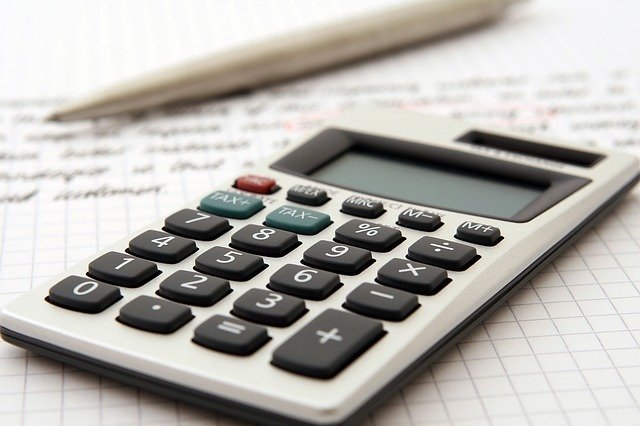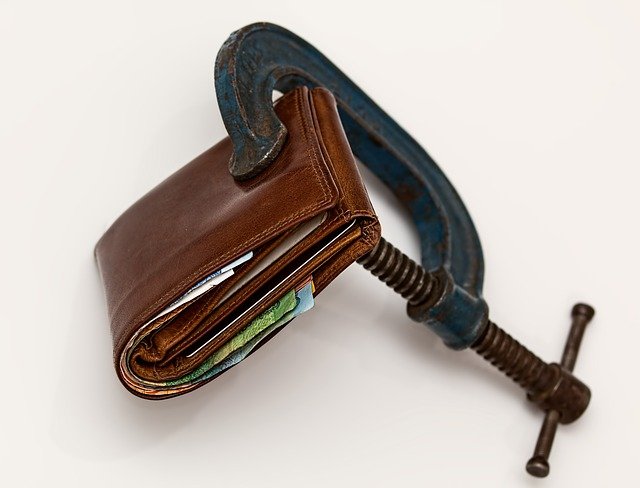Are you looking forward to the day when you can finally pack it in and leave behind the drudgery of the workplace? When you can spend the rest of your time doing what you love and enjoying the life you want to live?
If you’re like many people, the idea of retiring early is the ultimate dream. But it may also seem like an impossible reality. There are always bills to pay and nest eggs to build up.
I can tell you from firsthand experience that it’s very possible to retire in your 40s. I retired a year and a half ago at the age of 43 and have never looked back.
Why Retire Early?
Believe it or not, not everyone wants to retire early. My father-in-law could retire any time he wants, but he feels that his job keeps his mind sharp. For others, they like the importance of their work or the camaraderie in the workplace.
Let’s look at some reasons for and against retiring early:
Pros: You’ll have more time to get in shape; You’ll reduce stress; You’ll get better sleep; You’ll have a better sex life; You’ll travel more; You’ll work on something cool like a novel or screenplay; You’ll connect more with your family & friends; You'll have more time for volunteer work; and the list goes on and on.
Cons: Your friends who are still working might hate you; You might get bored occasionally; and um, that’s about all I can come up with right now.
I always wanted to retire early, but I thought early meant in my 50s. It wasn’t until I took a sabbatical from work that I realized how great it was to do what I wanted to do when I wanted to do it.
In my blog post 7 Reasons to Take a Sabbatical (& How To Do It), I describe many of the wonderful benefits of taking time off from work. Things like getting into shape, reducing stress, reconnecting with your partner, traveling more often, and connecting with nature.
When I wrote that post I was 8 months into my sabbatical. Although I was enjoying every moment of it, I assumed I would go back to work eventually.
After a little over a year of not having a "real job,” my wife Allison and I had an epiphany. We crunched the numbers and realized, based on our annual expenses, that we had enough money saved up to go ahead and retire now. Woo hoo!!
If you need one more reason to retire early, think about this. When you’re on your deathbed, are you going to regret that you didn’t spend more hours at the office? Or that you didn’t write up more reports or go to more meetings?
Bronnie Ware, an Australian nurse, spent years working in palliative care with dying patients. She put together a famous compilation of their top five regrets. One of the top regrets was simply “I wish I hadn’t worked so hard.” Bronnie summarized it here:
"This came from every male patient that I nursed. They missed their children's youth and their partner's companionship. Women also spoke of this regret, but as most were from an older generation, many of the female patients had not been breadwinners. All of the men I nursed deeply regretted spending so much of their lives on the treadmill of a work existence."
It saddens me just reading that, because I know this is how most people are conditioned to spend their lives. And it doesn’t have to be that way.
Why is 43 the Magic Number?
I’ve read a few very inspirational blog posts about people retiring in their 30s. While I think that’s commendable and awesome if you can pull it off, I chose 43 as a more realistic target. The main reason is because it gives you more time to build up your nest egg, say 15-20 years.
Unless you were born into money, win the lottery, or hit it big with a startup IPO, you’re going to need some time to build up your retirement funds. The majority of my earning and saving years were between 28 - 43 years old.
Retiring in your early 40s also means you're still physically healthy and vibrant enough to really enjoy it. I can't tell you how many times we've met older retirees who waited their whole lives to travel. And when they finally got out there, they could hardly walk (let alone do anything adventurous).
So let's look at the first few steps to get you on your way to early retirement (Warning: there will be math and financial talk)...
1. Tally up your Assets
First, you have to do some math and run the numbers. If you don’t already know your net worth, then you should start tracking it. I use a simple Excel spreadsheet with all of our assets at the top and all liabilities at the bottom. The difference between the two is our net worth.
It’s also important to understand what type of assets you have accumulated: liquid (cash & non-retirement funds), semi-liquid (retirement accounts), and non-liquid (real estate).
You can tap into your liquid assets anytime, but you’ll have to wait to get at your retirement accounts (if you don’t want to pay penalties to the government). However, there is a strategy to avoid paying early retirement fund penalties. It’s called the Roth Conversion Ladder. The blog Root of Good does a good job describing how this method works.
The basic idea is that you can withdraw Roth retirement funds without a penalty anytime after 5 years. And you can convert Traditional retirement accounts to Roth accounts. So using the laddering process, you would convert a fixed amount from Traditional to Roth each year. Make sure you check with your tax advisor or personal financial planner for details.
2. Figure out your Expenses
The next thing you need to figure out is what your annual expenses are. One way to do it quickly is look at your bank account balance today vs one year ago. But you’ll also want to do a more thorough analysis of your monthly expenses.
Factor in your monthly expenses such as housing (rent or mortgage, home insurance, property tax, etc), utilities (gas & electric, cable, Internet, etc), vehicle (car payments, gas, insurance), food, entertainment, travel, and miscellaneous (education, child care, health insurance, etc).
Multiply all of this by 12 to go from monthly to yearly expenses.
3. Do the Math
Once you’ve figured out your net worth, your liquid and semi-liquid assets, and your yearly expenses, you can simply divide your liquid and semi-liquid assets by your yearly expenses to see how many years you can live in retirement. Now, keep in mind there are a number of caveats to this number, and we’ll look at those in a moment.
But for now, let’s look at an example. Say you have $700k in liquid assets, another $1 million in retirement funds, and your yearly expenses are $36,000 (or $3k per month).
Unless you use the Roth Conversion Ladder process, it’s good to look at this two ways: one with just your liquid only assets, and secondly with your semi-liquid assets. That would give you roughly 19 years using your liquid assets and 47 years combining your liquid + semi-liquid assets. If you’re 43 years old, then liquid assets get you age 62 and semi-liquid gets you to age 90.
This is a good time to spell out the current milestones for taking out retirement funds and collecting social security:
Age 59 ½ -- You can start withdrawing from your retirement accounts with no penalty
Age 65 -- You’re now eligible for Medicare
Age 67 -- You can start collecting full Social Security benefits
Age 70 -- Social Security payments continue to grow by 8 percent per year for each year you delay claiming up until age 70
And what if you live past 90? Don’t worry, we’ll talk about ways you can increase your nest egg.
BTW, if you’re curious, you can see what your current life expectancy is based on Social Security Actuarial tables. It says I’ll live until 79, but hopefully I’ll go beyond that!
How Do You Start Building Up that Nest Egg?
As I mentioned, one of the main reasons I suggest retiring in your 40s instead of your 30s is that it gives you more time to build up your nest egg. If you've been working since you graduated from college, it gives you around 20 years of income that you can save and invest over time.
This is what Allison and I did. We basically worked hard for about 15 years. We made sure to save up a good portion of our salaries and put that money into investment and retirement vehicles (401Ks, IRAs, etc.).
In addition, I had a side business that brought in what amounted to a “third income” for about five years. You can do this too. My friend Ryan Robinson specializes in helping people identify, create, and build successful side businesses. You can learn all about it on his website ryrob.com.
For building wealth, time is your biggest ally. As I describe in my blog post 7 Things To Do By Age 30 For an Amazing Life, the two biggest financial levers are dollar cost averaging and compound interest.
Calculate your monthly budget, determine a percentage of your income each month to invest (for example 5-10%), and set up an automatic deposit. To get even more bang for your buck, see if your employer offers a 401k plan and whether they match any of your contributions.
I also recommend Vanguard, which has some of the lowest management fees. An easy fund to invest in is a Target Date fund, which basically lets them do the work of managing your portfolio of stocks and bonds (both domestic and international), gradually shifting from a more aggressive stock-focused strategy to a more conservative bond-focused plan as you approach retirement.
You can select any target retirement year (in 5 year increments) from 2010 (least aggressive) to 2060 (most aggressive). Try to shoot for a year when you’ll be at a more standard retirement age, such as 65 years old.
Reduce Your Expenses
Your biggest expense in life is going to be your home, whether you buy or rent. If you’re a homeowner, you should definitely consider refinancing while interest rates are at historic lows.
Ultimately, if you can get to a fully paid off mortgage, it’ll make early retirement that much easier. It took us awhile, but we were able to go from our first condo purchase in 1999 to owning a home with no mortgage in 2014.
We bought our first home in 1999, a 1-bedroom condo in the Oakland Hills, for under $200k. We sold it about a year later for $250k and continued buying and selling properties over the next 14 years. Each time we moved into something slightly better, whether it was a better neighborhood, a nicer space, or a bigger floorplan. By 2009 we owned about $3 million worth of property in San Francisco.
We were able to pull this off, because we rented out several units to cover our mortgage payments. It was an effective strategy, but of course had its risks. We had to deal with the stresses of the housing mortgage crisis, strict rent control laws, a revolving door of renters in one unit, and hefty mortgages and property tax bills.
But it ultimately paid off when we sold all our properties and bought our current home in cash.
If you don't want to be a landlord, there are other strategies to get to a zero mortgage. For example, make extra payments to pay off your mortgage faster. If you make one extra payment each quarter, you'll pay off your 30-year mortgage 11 years faster. Your hard work will pay off in the end with less stress and more peace of mind.
How else can you reduce costs?
Your car: Your second biggest expense after housing is your vehicle. One way to save is to drive your car longer. We’re still driving our 2003 VW Jetta, which we paid off back in 2004. We also don’t drive much, so that saves in gas and maintenance costs.
Smarter purchases: Your groceries in bulk at Costco or you local warehouse store (pet food, toilet paper, etc). Check with your insurance broker and inquire about discounts for combining auto and home policies. Invest in a Netflix account (or something similar) and reduce your cable bill. Breaking Bad marathon, anyone?
Do it yourself: Prepare your own meals (it’s fun & healthier). You can recipes online at sites like Pinch of Yum. Other DIY savers: Make your own coffee, do your own home improvement projects, and do your own taxes with software like TurboTax. You may find doing things yourself not only saves you money, but also gives you a great feeling of accomplishment.
Do things less often: Maybe you don’t need to get a haircut, dry clean your clothes, or pay a housekeeper as often as you do now. I, for one, have decided to let my hair grow out a bit. Not only will it save me money, but since I don’t have to go into an office, I can be more casual.
Free stuff: You can find things for free on sites like Freecycle or check with your friends about doing swaps. Our friend Monica puts together a clothing swap twice a year and invites all her friends and their friends. You bring clothes that you don’t wear anymore and pick up new-to-you clothes from other people. All leftovers go to a local charity.
How to Get Even More Out of Your Nest Egg
So what if you live past 90 (or whatever your goal age is)? Well there are a number of additional sources of revenue that we didn’t factor in. Here are some examples:
Appreciation on investments: The calculations we looked at didn’t take into account your investments going up in value. While we’re likely to see some down years, over the course of 20 - 40+ years, we expect to see positive returns on average.
Reverse mortgage: If you’re afraid you might run low on funds and you own your home, you can always do a reverse mortgage. This allows homeowners aged 62 or older to convert their home equity into cash with no monthly mortgage payments.
Selling assets: You may have amassed a number of assets over the years from real estate to collectibles to jewelry. Since you can’t take these to the grave, you may want to sell some of them off in your twilight years.
Possible Pitfalls & Plan Bs
Of course things don’t always go as planned. Some additional factors to consider are inflation, increasing cost of living, depreciating investments, or large unexpected costs like health or legal issues.
While not everything is foreseeable or avoidable, there are a number of things you can do to mitigate the risks. First, make sure to diversify your assets and investments as much as possible. Take advantage of the target date investment funds to shift out of aggressive stocks and into less risky bonds over time.
You can also downsize your home at any time if you’re a homeowner. Perhaps you no longer need that giant house in the suburbs if all your kids are grown and moved out. You could downsize into something much smaller and maybe a new location.
Speaking of locations, the ultimate Plan B would be to move to another country. A lot of retirees move overseas to take advantage of the low cost of housing and healthcare. Many countries in Central & South America, Asia, and parts of Europe are ideal for this. International Living is a great resource for expats.
Conclusion
Here are a few final tips for your early retirement:
Health Insurance: Make sure you have coverage, whether it’s through the Affordable Care Act, Medicare, or some other plan. You don’t want to get surprised by an unforeseen medical emergency.
No guilt: Don’t feel bad about retiring early. It’s an amazing life perk that you’ve earned and created for yourself and your family. Embrace it!
Have fun: Enjoy those extra hours of life you’ve given yourself. Do what makes you happy and fulfilled. Go on that trip, visit your long lost relatives, write that book, or just chill out.
It may not be easy, but if you put together a solid plan and follow it through, you too can retire in your 40s.
Allison and I are excited about our decision to retire early, and we’re definitely looking forward to the next 40+ years of travel, adventure, and whatever life has in store for us!








